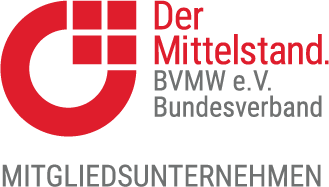„DGUV V3 Preise: Kosten für elektrische Sicherheitsprüfungen“
Paragraph 1:
Herzlich Willkommen zum spannenden Thema der DGUV V3 Preise! Du bist sicher neugierig, wie viel dich elektrische Sicherheitsprüfungen kosten können. Keine Sorge, wir haben alle Informationen für dich zusammengetragen.
Paragraph 2:
Die DGUV V3 Prüfungen sind von großer Bedeutung, um die Sicherheit von elektrischen Anlagen zu gewährleisten. Ob in Betrieben, öffentlichen Einrichtungen oder in Gebäuden – die regelmäßige Kontrolle ist unerlässlich. Doch wie sieht es mit den Kosten aus?
Paragraph 3:
Die Preise für DGUV V3 Prüfungen können je nach Umfang und Art der Anlage variieren. Es gibt keine festen Tarife, da jeder Auftrag individuell betrachtet werden muss. Dennoch gibt es einige Faktoren, die die Kosten beeinflussen können. Lass uns näher darauf eingehen!
Gleich geht’s los mit allen wichtigen Informationen zu den DGUV V3 Preisen. Bist du bereit? Dann lass uns eintauchen!
Entdecken Sie die Kosten für elektrische Sicherheitsprüfungen nach DGUV V3. Erfahren Sie, wie viel Sie für diese wichtige Dienstleistung bezahlen müssen. DGUV V3 Preise können je nach Anbieter und Umfang der Prüfung variieren. Informieren Sie sich über die durchschnittlichen Kosten und erhalten Sie wertvolle Tipps zur Budgetplanung. Bleiben Sie sicher und schützen Sie Ihr Unternehmen vor möglichen Elektrizitätsrisiken.

DGUV V3 Preise: Kosten für elektrische Sicherheitsprüfungen
Electricity plays a crucial role in our daily lives, powering our homes and businesses. However, it is essential to ensure the safety of electrical installations to prevent any potential hazards. The DGUV V3 is a set of guidelines and regulations in Germany that govern electrical safety in the workplace. One aspect of DGUV V3 is the requirement for regular electrical safety inspections, which come with associated costs. In this article, we will delve into the DGUV V3 prices and explore the costs involved in electrical safety inspections.
Relevance of DGUV V3 for Electrical Safety
The DGUV V3, also known as the German Social Accident Insurance Regulation 3, focuses on the prevention of electrical accidents in the workplace. It places the responsibility of electrical safety on employers and stipulates the necessary measures to be taken to ensure the well-being of employees. One of the key requirements outlined in DGUV V3 is the regular inspection of electrical installations and equipment. These safety inspections play a vital role in identifying any potential faults, defects, or hazards that may arise in the electrical systems.
Understanding DGUV V3 Preise
When it comes to DGUV V3, one of the critical factors to consider is the cost associated with electrical safety inspections. DGUV V3 prices can vary depending on various factors, such as the size and complexity of the electrical installation, the number of test points, and the frequency of inspections. It is essential to understand the pricing structure to adequately budget and plan for these inspections.
The costs for DGUV V3 inspections typically include not only the actual inspection but also the necessary preparatory work and documentation. The inspection itself involves a qualified electrician conducting a thorough examination of the electrical installation and its components. This process ensures compliance with safety standards and identifies any potential risks. Additionally, the costs may also include the issuance of a test report and any necessary repairs or maintenance that may be required to bring the installation up to standard.
Factors Affecting DGUV V3 Prices
Several factors can influence the DGUV V3 prices for electrical safety inspections. Firstly, the size and complexity of the electrical installation play a significant role. Larger installations will require more time and effort to inspect thoroughly, leading to higher costs. The number of test points, including outlets, switches, and circuit breakers, also affects the overall price. The more test points, the longer the inspection will take, resulting in increased expenses.
Another factor that can impact DGUV V3 prices is the frequency of inspections. DGUV V3 mandates regular inspections at defined intervals, depending on the type of installation. Generally, more frequent inspections, such as annual or biennial ones, will increase the overall costs compared to less frequent inspections. The age and condition of the electrical installation may also be considered, as older installations may require more extensive inspections and potential repairs.
Overall, it is essential for businesses to consider these factors and budget accordingly for DGUV V3 inspections. While the costs may vary, it is important to prioritize electrical safety to protect employees and comply with legal requirements.
Benefits of DGUV V3 Inspections
Now that we have explored the costs associated with DGUV V3 inspections, let’s delve into the benefits of undergoing these electrical safety assessments. DGUV V3 inspections provide several advantages to both employers and employees.
Firstly, DGUV V3 inspections help identify potential electrical hazards, ensuring that corrective actions are taken promptly. By addressing these risks, employers create a safer working environment, reducing the likelihood of accidents or injuries caused by electrical faults. This, in turn, leads to increased employee morale and productivity.
DGUV V3 inspections also help businesses comply with legal requirements and industry standards. Demonstrating compliance with regulations not only safeguards employees but also protects the reputation of a company. Clients and partners are more likely to trust and engage with businesses that prioritize safety and adhere to regulations.
Furthermore, regular DGUV V3 inspections can help prevent costly electrical failures and downtime. By identifying and rectifying issues early on, businesses can avoid potential disruptions to operations and the associated financial losses. Proactive maintenance and repairs also contribute to extending the lifespan of electrical equipment and reducing the need for costly replacements.
In summary, the costs associated with DGUV V3 inspections are an important investment in electrical safety. By prioritizing these inspections, businesses can mitigate potential risks, comply with regulations, and create a safer working environment for their employees.
Tips for Managing DGUV V3 Costs
While DGUV V3 inspections are essential, businesses can take certain steps to manage the associated costs effectively. Here are some tips to keep in mind:
1. Plan and budget: Incorporate DGUV V3 inspection costs into your annual budget to ensure adequate funds are allocated. This allows for better financial planning and avoids any last-minute budget constraints.
2. Optimize inspection frequency: Work with a qualified electrician to determine the optimal inspection frequency based on your installation’s age, condition, and usage. Finding the right balance between compliance and cost-efficiency is key.
3. Consistent maintenance: Regularly maintain your electrical installations to minimize the chance of major issues arising during inspections. This can help reduce potential repair costs and ensure a smoother inspection process.
4. Prioritize repairs: Address any identified issues promptly to avoid further damage and potential safety hazards. Timely repairs can prevent costly replacements and ensure a safer working environment.
5. Consider bundling services: Some electrical service providers may offer bundled packages, combining DGUV V3 inspections with other maintenance or repair services. This can help reduce costs and provide comprehensive electrical support.
By implementing these tips, businesses can effectively manage DGUV V3 costs while prioritizing electrical safety and compliance.
DGUV V3 Preise: Kosten für elektrische Sicherheitsprüfungen
- Die DGUV V3-Prüfung ist eine gesetzlich vorgeschriebene Sicherheitsprüfung für elektrische Anlagen.
- Die Kosten für die DGUV V3-Prüfung variieren je nach Art und Größe der Anlage.
- Es ist wichtig, Angebote von verschiedenen Anbietern einzuholen, um die besten Preise zu erhalten.
- Die regelmäßige Durchführung der DGUV V3-Prüfung kann langfristig Kosten sparen, indem potenzielle Schäden und Ausfälle vermieden werden.
- Die DGUV V3-Prüfung sollte nur von zertifizierten Fachkräften durchgeführt werden, um sicherzustellen, dass sie ordnungsgemäß durchgeführt wird.
Häufig gestellte Fragen
Hier finden Sie Antworten auf einige häufig gestellte Fragen zu den DGUV V3 Kosten für elektrische Sicherheitsprüfungen.
1. Was sind DGUV V3 Kosten und warum sind sie wichtig?
Die DGUV Vorschrift 3 (ehemals BGV A3) legt die Prüfung elektrischer Anlagen und Betriebsmittel am Arbeitsplatz fest. Die damit verbundenen Kosten beziehen sich auf die Durchführung dieser Sicherheitsprüfungen. Es ist wichtig, sie regelmäßig durchzuführen, um die Sicherheit der Mitarbeiter und die Einhaltung der gesetzlichen Vorschriften zu gewährleisten. Bei Vernachlässigung der Prüfungen können Stromunfälle, Sachschäden und sogar Personenschäden auftreten.
Die DGUV V3 Kosten umfassen normalerweise die Prüfkosten selbst, möglicherweise den Arbeitsaufwand des Prüfpersonals und gegebenenfalls die Kosten für Reparaturen oder Erneuerungen, falls Mängel festgestellt werden. Es ist wichtig, diese Kosten in das Budget einer Organisation einzuplanen, da dies eine wesentliche Verantwortung des Arbeitgebers ist.
2. Wie werden die DGUV V3 Kosten berechnet?
Die genaue Berechnung der DGUV V3 Kosten ist von verschiedenen Faktoren abhängig, wie der Größe des Unternehmens, der Anzahl der zu prüfenden elektrischen Anlagen und Betriebsmittel, der Art der Prüfungen (Erstprüfung oder Wiederholungsprüfung) und der eventuell erforderlichen Reparaturen. Es ist daher schwer, eine allgemeine Preisliste anzugeben.
Am besten ist es, sich an anerkannte Fachleute oder Dienstleister für elektrische Sicherheitsprüfungen zu wenden, um ein individuelles Angebot basierend auf den Anforderungen Ihres Unternehmens zu erhalten. Sie können Ihre spezifischen Bedürfnisse besprechen und Ihnen eine genaue Kostenschätzung liefern.
3. Welche Vorteile bieten die DGUV V3 Kosten?
Die DGUV V3 Kosten sind keine unnötigen Ausgaben, sondern Investitionen in die Sicherheit Ihrer Mitarbeiter und die Einhaltung der Vorschriften. Durch regelmäßige elektrische Sicherheitsprüfungen können potenzielle Schwachstellen oder Mängel rechtzeitig erkannt und behoben werden, um Stromunfälle zu verhindern. Dadurch wird das Risiko von Sachschäden, Betriebsausfallzeiten und Personenschäden reduziert.
Darüber hinaus bietet die regelmäßige Durchführung von DGUV V3 Prüfungen auch rechtliche Sicherheit. Im Falle eines Unfalls oder einer behördlichen Überprüfung können Sie nachweisen, dass Sie Ihre Pflichten als Arbeitgeber erfüllt haben und die notwendigen Sicherheitsmaßnahmen ergriffen haben.
4. Sind DGUV V3 Kosten für alle Unternehmen obligatorisch?
Ja, die DGUV V3 Kosten sind für alle Unternehmen in Deutschland obligatorisch. Die DGUV Vorschrift 3 gilt für alle Arbeitgeber, die elektrische Anlagen und Betriebsmittel am Arbeitsplatz verwenden. Unabhängig von der Größe oder Art Ihres Unternehmens sind Sie gesetzlich verpflichtet, regelmäßige elektrische Sicherheitsprüfungen gemäß der DGUV V3 durchzuführen.
Es ist wichtig, die gesetzlichen Bestimmungen einzuhalten, um das Wohlergehen Ihrer Mitarbeiter und die Betriebssicherheit zu gewährleisten. Durch die Einhaltung der DGUV Vorschrift 3 können Sie auch rechtliche Probleme oder Sanktionen vermeiden, die sich aus der Nichteinhaltung ergeben können.
5. Können die DGUV V3 Kosten je nach Dienstleister variieren?
Ja, die DGUV V3 Kosten können je nach Dienstleister variieren. Unterschiedliche Dienstleister bieten unterschiedliche Leistungspakete und Kostensätze an. Einige Faktoren, die die Variabilität der Kosten beeinflussen können, umfassen die Erfahrung des Dienstleisters, die Qualität der durchgeführten Prüfungen, den Umfang des Serviceangebots und die spezifischen Anforderungen Ihres Unternehmens.
Es ist wichtig, sich mehrere Angebote von verschiedenen Dienstleistern einzuholen und die spezifischen Leistungen und Kosten zu vergleichen, um die beste Option für Ihr Unternehmen zu finden. Eine gründliche Recherche und Auswahl des Dienstleisters kann dabei helfen, den richtigen Balancepunkt zwischen Qualität und Kosten zu finden.
Zusammenfassung
Elektrische Sicherheitsprüfungen sind wichtig, um Unfälle zu vermeiden und Menschen zu schützen. Die Kosten für diese Prüfungen können jedoch variieren, je nachdem, welchen Anbieter man wählt. Es lohnt sich, die Preise verschiedener Anbieter zu vergleichen, um das beste Angebot zu finden. Außerdem ist es wichtig zu beachten, dass die Preise nicht von der DGUV festgelegt werden, sondern individuell vereinbart werden können.
Es gibt auch die Möglichkeit, die Sicherheitsprüfungen intern durchzuführen, was Kosten sparen kann. Allerdings ist es wichtig, dass die Personen, die diese Prüfungen durchführen, über ausreichende Kenntnisse und Erfahrungen verfügen. Es ist auch ratsam, die regelmäßige Schulung und Zertifizierung der Mitarbeiter sicherzustellen. Insgesamt sollte man die Kosten für elektrische Sicherheitsprüfungen sorgfältig abwägen und die beste Option für den eigenen Bedarf finden.

